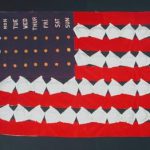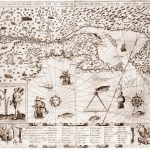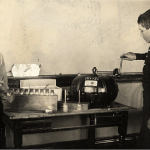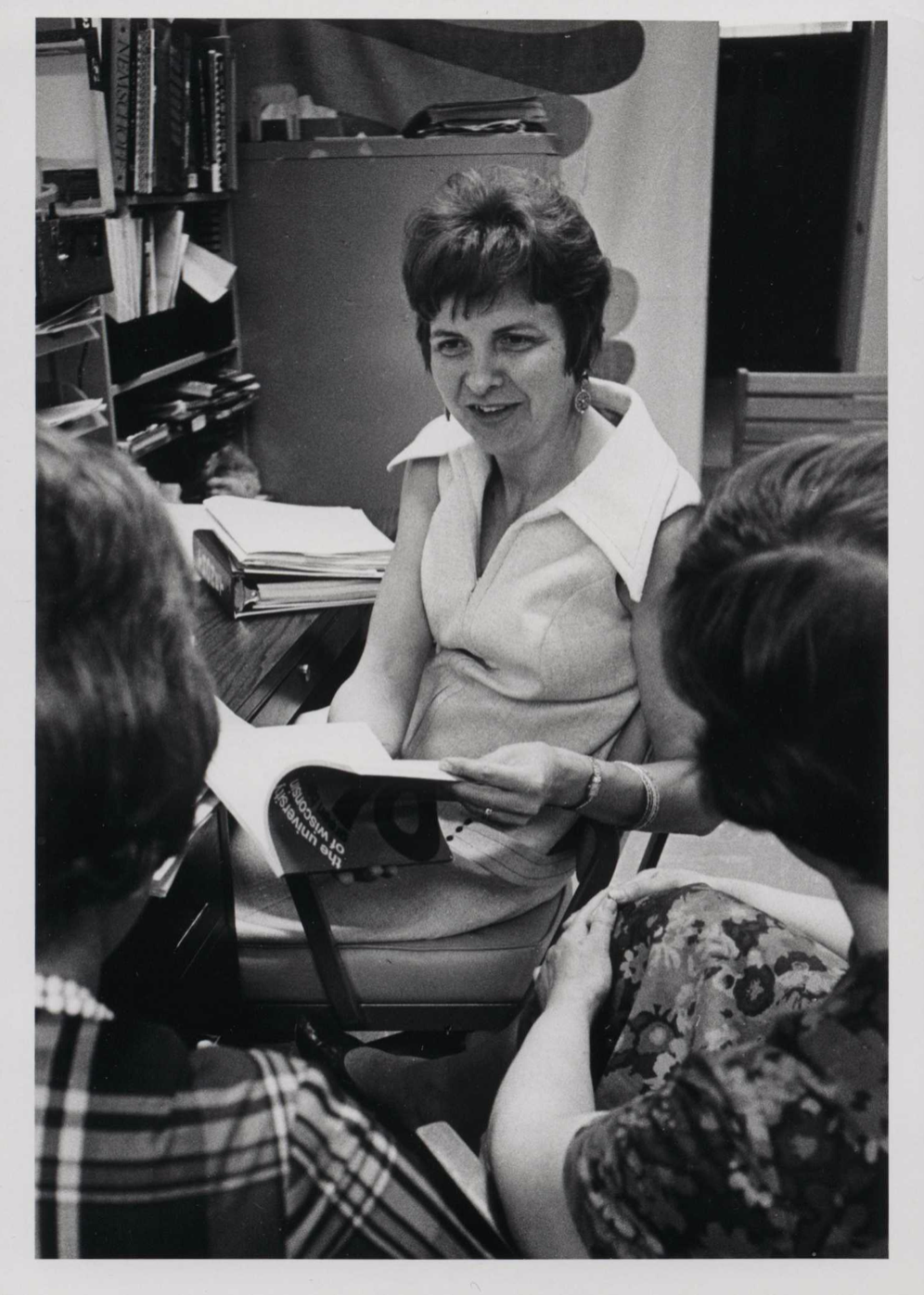
In the 1940s, it was rare for young women like Marge Engelman to pursue higher education. Having grown up in Illinois on her parents’ farm, Engelman was pressured by her father to stay on the family farm and to marry a farmer. In an interview for UW-Green Bay, Engelman shared that her high school principal encouraged her to consider a college education. Engelman ended up being the only girl from her high school class to attend university. Little did she know that pursuing her undergraduate degree was the first step towards building a fulfilling career in education, community outreach, and the arts.
Engelman attended Illinois Wesleyan University on a scholarship and studied sociology. There, she met her husband, Ken. After graduating in 1949, Engelman pursued a master’s degree in education from Northwestern University. Ken was a Methodist minister whose work took him all over the state. The pair first moved to Wautoma, then Appleton and Whitewater, before settling in Green Bay.
Engelman entered the workforce as a teacher in the early 1960s. She taught introductory courses in design at the UW-Green Bay and Fox Valley campuses. In 1969, she moved into administration after being appointed as Assistant to the Assistant Chancellor at UW-Green Bay.[1] The position focused on community outreach. UW-Green Bay was expanding into a four-year university, requiring curriculum updates and major policy changes that emphasized interdisciplinary work and student environment. Engelman recognized that Green Bay needed to make classes more accessible. Her team offered continuing education classes for inmates, mothers, and Native Americans living on Wisconsin’s reservations.
Engelman often worked with older students during this time. Consequently, she discovered an interest in serving returning adult students and was appointed as Assistant for Returning Adults from 1970-1971. She found adult education necessary, captivating, and inspiring. While attending UW-Madison in pursuit of her Ph.D., she conducted research on creativity in aging women, graduating in 1977.
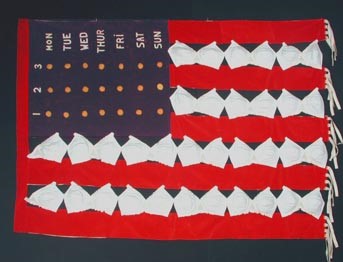
Engelman found pleasure in creating artwork. Her work was recreational, but illustrated her passion for activism, as seen in her 1970 artwork The Land of the Freed-Up Woman. This piece and another work of hers titled Feathered Cocoon were displayed at the Neville Museum’s Northeastern Wisconsin Art Annual in 1970.[2] Engelman’s experience as a working woman during the Women’s Liberation movement influenced her artwork.
In 1974, Engelman became the Director of Equal Opportunity for UW-Green Bay. She was responsible for managing claims from students and faculty. During her tenure in this role, she learned that female students were being sexually assaulted on campus. In response, she posted messages in the women’s restrooms, warning women of the recent violence. Engelman felt as though she was “walking on a tightrope” during this charged time. She noted that she was personally harassed as well, noting a time she was described as solely a “sex object” by her male coworkers. In order to uplift women, Marge fought for a childcare center at UW-Green Bay and pioneered a campus Women’s Center, which she described as a place for women to “be together and support each other.”[3]
Engelman retired from UW-Green Bay in 1985 after years of championing adult education programs, creating resources for women, and engaging in community outreach. Her work shaped UW-Green Bay into the university it is today.
Written by Keeley Flynn, August 2021.
FOOTNOTES
[1] Marge Engelman, Resume, University of Wisconsin-Green Bay Archives, n.d.
[2] Northeastern Wisconsin Art Annual, Exh. Cat. (Green Bay, WI: Neville Public Museum of Brown County, 1970)
[3] Marge Engelman, interview by Jane Rank (Oral History Interview, UW-Green Bay Oral History Collection, August 27, 2013), http://diglib.uwgb.edu/digital/collection/p17003coll7/id/77/rec/1.

